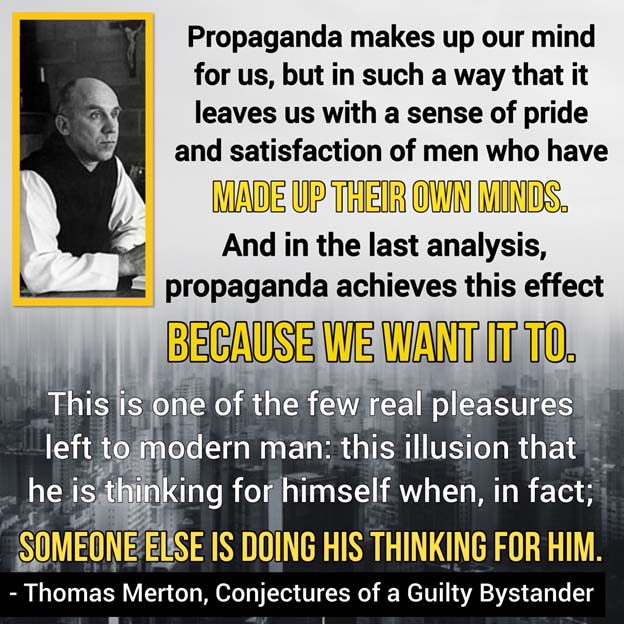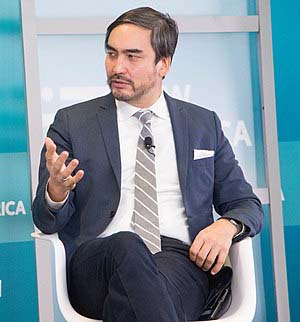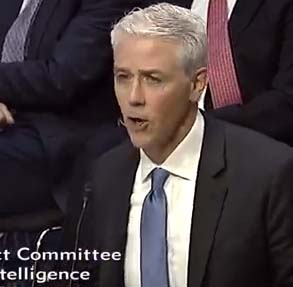By Lucy Komisar
April 13, 2020

I saw this post on a tweet, Thomas Merton on how good propaganda makes people think they made up their own minds.
Then, reading a review about Surveillance Capital in the New York Review of Books, I was intrigued by reviewer Tim Wu commenting, “As the twentieth-Century French philosopher and Christian anarchist Jacques Ellul pointed out, it is those who think themselves immune to propaganda who are the easiest to manipulate.
But what makes it hard to answer the question is the fact that it is entwined with a different phenomenon: the return, to center stage, of the dark arts of disinformation (Here he mentions the influence of social media)….Yet much of that power seems to derive from traditional propaganda techniques: false or slanted information, scapegoatism, and, above all, total saturation with repetitive message.”
And then, mirabile dictu, the reviewer turns out to be a victim of the propaganda system he describes! For, he declares, “…the microtargeting made possible by data collection has made it easier for the Russian government to reach the right American voters with fake news and divisive information.”

I looked at the bios to see who Tim Wu is: a professor at Columbia Law School and a contributing opinion writer for The New York Times.
Your evidence, please?
Ah, I thought, you‘re a law professor, so you know something about the importance of evidence. Please supply the evidence that the Russian government has targeted American voters with fake news and divisive information. Evidence does not mean the intelligence agencies or Rep. Adam Schiff say so, because they provide no evidence. It doesn‘t mean the NY Times says so, because it also provides no evidence. It just cites intelligence agencies.

In fact, the only facts we know about the story of Russian meddling in the 2016 election that has saturated the U.S. media for several years is what Facebook General Counsel Colin Stretch told the Senate Intelligence Committee, November 1, 2017: that the Russian Internet Research Agency had spent $46G on pre-election Facebook ads (which didn’t mention candidates), which was .05% of the $81 million the candidates themselves spent on Facebook ads! Here’s the full hearing.
So, according to the sowing divisiveness theory, an ad about cops killing blacks would have targeted Black Lives Matter supporters, who obviously would not know or care about the issue unless some Russians told them. Right?
BTW, the Russians can learn a lot from U.S. elites about sowing divisiveness the traditional way, how they used racism to divide working class blacks and whites in the post-Civil War South. That never ended, viz the Trump campaign. Or Clinton‘s “basket of deplorables.”
Tim Wu knows a lot about the media, one of his teaching subjects. He should know about clickbait, how internet operations around the world put out stories and ads designed to get readers to click on links that pay them ad money.
He should check out how the Russophobic propaganda he is a victim of is promoted in the NY Times, more specifically, how it lies about the Browder-Magnitsky hoax. I present that as an example, because I‘ve analyzed these stories with links to real evidence that expose them as “fake news.” And Russophobic reportage by the Times and other U.S. media fits the bill of “total saturation.” Click on this headline:
And this one, NYT repeats fabrication of Magnitsky as lawyer and whistleblower. See Browder’s testimony admitting Magnitsky didn’t go to law school or have a law degree. Prof Wu, you must know what it takes to be a lawyer in other countries.
Prof Wu, I‘m sending this to you in the hopes you will answer, and, especially provide evidence of, as you wrote, how the Russian government has targeted American voters with fake news and divisive information. Penny-ante click bait operations don’t count.
April 21: A week later, no response. Though academics are supposed to welcome and deal with differences of opinion, Prof. Wu does not like challenges to his promotion of Russiaphobic propaganda. So much for the writers bringing a diversity of opinions to the Russiaphobic New York Times.


Thank you Lucy! Excellent!